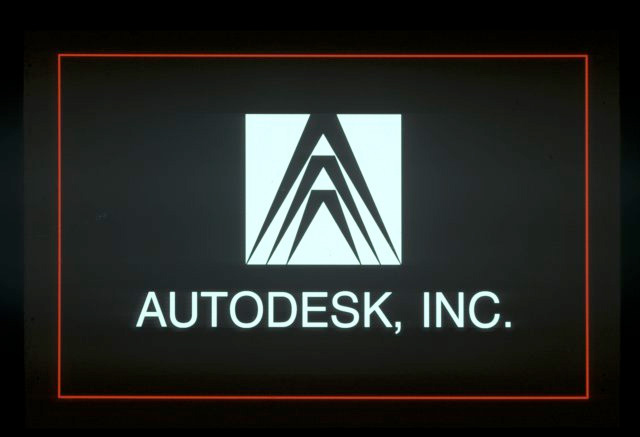Chapter 8: Commercial Animation Software
8.7 Autodesk/Kinetix/Discreet


Autodesk Inc. was founded in 1982 with a focus on design software for the PC. They went public in 1985. For a first-person account of the history, read John Walker‘s online history of Autodesk at http://www.fourmilab.ch/autofile/ told through the letters and memos from and to the inner circle of the company.

Autodesk in 1986 began efforts to develop an animation package. Key developers were Jamie Clay and Autodesk founder John Walker. Autodesk’s first animation package was AutoFlix (for use with AutoCAD and AutoShade), and AutoFlix 2.0 which included the Animation Tool Kit for AutoCAD.
In early 1988, Gary Yost left Antic, developers of software for the Atari, to pursue a contract development deal with Eric Lyons and David Kalish at Autodesk and to begin work on Autodesk 3D Studio (code-named THUD after its principal developer Tom Hudson), and Autodesk Animator. Gary brought Jack Powell along, too, and the Yost Group, Inc. was born. (The Yost Group was eventually bought by Autodesk.)
At the 1989 SIGGRAPH in Boston, Autodesk unveiled a new PC based animation package called Autodesk Animator. As a full featured 2D animation and painting package, Animator was Autodesk’s first step into the multimedia tools realm. The software-only animation playback capabilities achieved very impressive speeds and became a standard for playing animation on PCs.
This early PC based animation software was used to visualize how nano machines might look. This animation was used in the BBC documentary “Little by Little” and was the first time an Autodesk animation product had been used for broadcast television.
Shortly before the release of the next generation of 3d Studio in 1996, the product MAX, the Multimedia Division of Autodesk was renamed to Kinetix, A Division of Autodesk. MAX shipped as Kinetix 3D Studio MAX. Since its release in 1997, 3D Studio VIZ continues to gain more acceptance within the architectural community for design and visualization. As a result it has shifted more specialized architectural users from MAX to VIZ. 3D Studio VIZ enables professionals in the architectural, land design and mechanical design sectors to design in 3D Studio VIZ and then transfer the images directly into a CAD environment.

Discreet, a division of Autodesk, was established in 1999 after Autodesk acquired Discreet Logic Inc. for US$520M and merged its operations with Kinetix®. Autodesk is the world’s leading design and digital content creation resource. The company provides software and Internet portal services to help customers drive business through the power of design. One of the largest software companies in the world, Autodesk helps more than 4 million customers in over 150 countries turn designs into reality.
From an investment banker’s research analysis:
“Since its launch, 3D Studio Max has had a phenomenal impact on the 3D animation market. Originally priced much lower than some of its counterparts who’s products ranged anywhere from $10,000 to $45,000, 3D Studio Max was quickly viewed as the attainable solution for professionals that had some price/performance issues. It continues to maintain strong price/performance value for users and the product’s expectancy remains high. One of the key success factors of 3D Studio Max has been the product’s ability to address the needs of a wide range of 3D animation professionals. Of all the animation packages 3D Studio Max runs across more vertical markets than any other package. Its largest user base continues to be within the game development sector. Aside from game development, it is used in film and broadcast, corporate design, industrial design and visualization, educational, forensic, and now Internet design.”
One of the keys to this broad base of users is it’s open architecture and support of third party vendors. This has enabled the product to build up over 100 plug-in products for more specialized functionality. Third party developers can develop standalone software modules (plugins) which can interface with the 3D Studio product. One of the more prominent plugins is Character Studio, developed by Susan Amkraut and Michael Girard of Unreal Pictures. Girard and Amkraut were the creators of the famous animation Eurhythmy while they were students at Ohio State, and developed the cult legend “Dancing Baby” as a test of their software. In 2004, Autodesk division Discreet acquired Unreal Pictures.
In January of 2006 Autodesk acquired Alias for $197M in cash, bringing the StudioTools and Maya software products under the Autodesk banner.
Movie 8.9 Eurythmy
This video is an excerpt from the movie Eurythmy by Michael Girard and Susan Amkraut.
Movie 8.10 Baby Cha
Michael Girard of Unreal Pictures originally used the surreal Dancing Baby figure as a sample to show off his animation software. It evolved as a popular Internet “meme”
